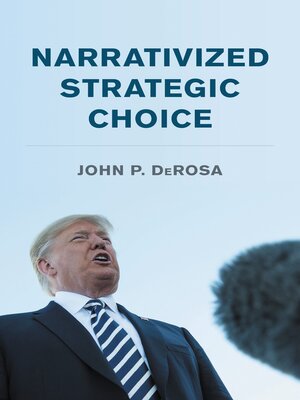
Sign up to save your library
With an OverDrive account, you can save your favorite libraries for at-a-glance information about availability. Find out more about OverDrive accounts.
Find this title in Libby, the library reading app by OverDrive.



Search for a digital library with this title
Title found at these libraries:
| Library Name | Distance |
|---|---|
| Loading... |
In February 2019, Donald Trump announced the United States withdrew from the landmark Cold War-era Intermediate-Range Nuclear Forces Treaty with Russia sparking worldwide concerns over the specter of a new nuclear arms race. The rational-actor and game-theoretic models dominating international relations literature failed to predict or explain this strategic choice.
Rationalist, normative, and materialist models of strategic choice saturate the study of international relations. Scholars continue to expose the shortfalls in these approaches in explaining or predicting outcomes of strategic interactions. In this timely study, John P. DeRosa advances a new model of strategic choice through a narrative lens. This narrative turn reframes the logic to emphasize the propositions of motives, perceptions, preferences, and the reflexive interaction of strategic choices. Case studies of American and Russian nuclear arms control treaties from the negotiations of the Intermediate-Range Nuclear Forces (INF) Treaty in 1987 to the crisis of the US withdrawal from the INF Treaty in 2019 support building a theory of "narrativized" strategic choice.
Rationalist, normative, and materialist models of strategic choice saturate the study of international relations. Scholars continue to expose the shortfalls in these approaches in explaining or predicting outcomes of strategic interactions. In this timely study, John P. DeRosa advances a new model of strategic choice through a narrative lens. This narrative turn reframes the logic to emphasize the propositions of motives, perceptions, preferences, and the reflexive interaction of strategic choices. Case studies of American and Russian nuclear arms control treaties from the negotiations of the Intermediate-Range Nuclear Forces (INF) Treaty in 1987 to the crisis of the US withdrawal from the INF Treaty in 2019 support building a theory of "narrativized" strategic choice.







